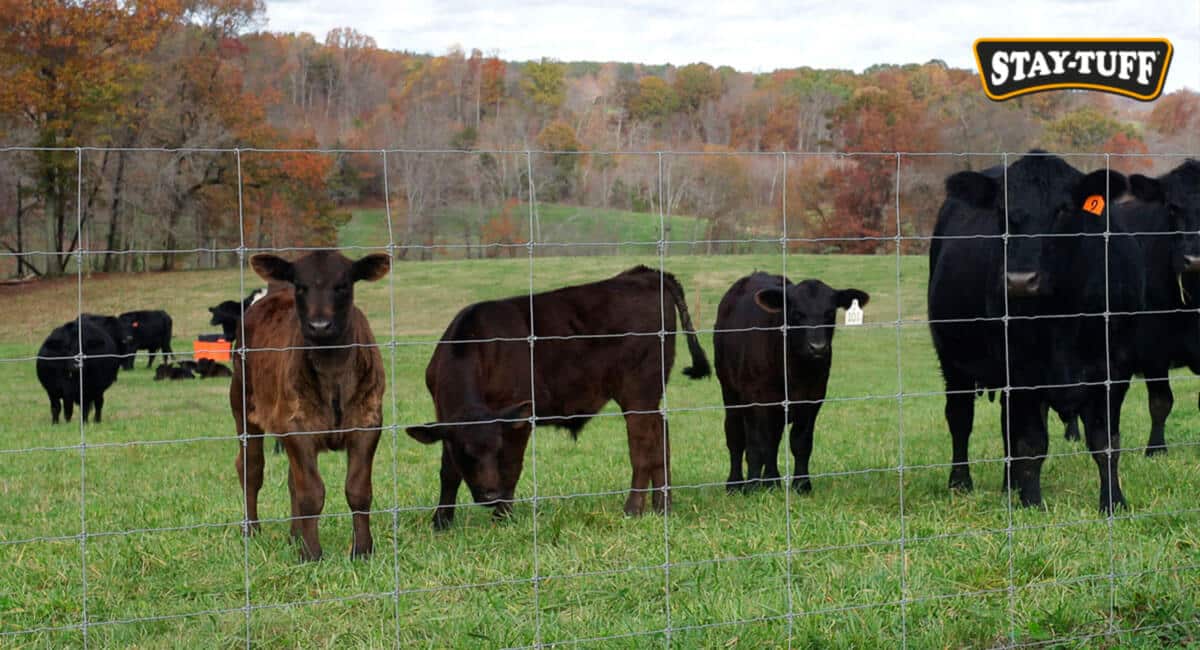
How to Build a Cattle Fence
Learn the essentials of a successful installation
Setting up a durable cattle fence around your property is the safest way to guarantee that your animals will be kept safe.
Oftentimes, the beginning of a project may feel overwhelming – Where to start? How to start? How much fence line will you need?
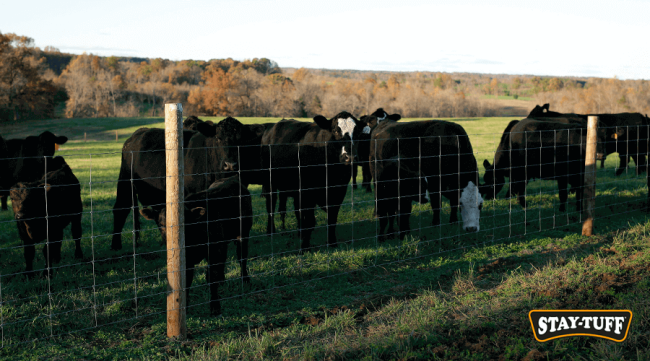
If you need some guidance installing a farm fence for your cattle, this article will give you some tips for your next fencing project.
First step: plan ahead
Before purchasing wire or posts, examine your property or area thoroughly.
It is suggested that you use a map of your property, which can be obtained through online sources, or local companies.
You will want to make sure that you are measuring in accordance to your property lines.
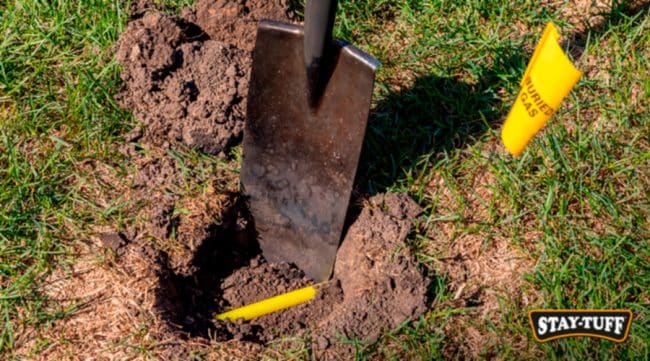
Checking for underground utility lines is critical as well, as this will prevent inconveniences, fines or accidents in the future.
Helpful tip:
If you’re unsure about the amount of fence posts or wire your project will require, you can use the STAY-TUFF Calculator.
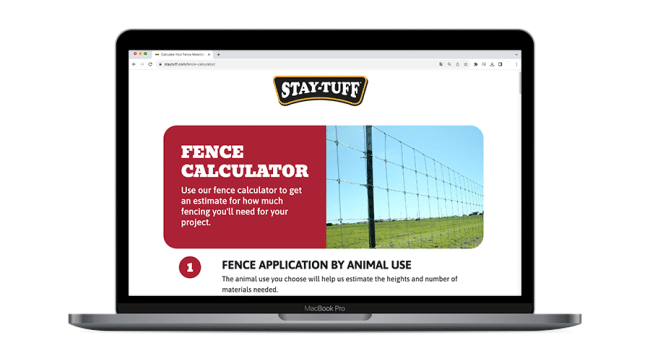
This simple tool will allow you to correctly estimate the amount of fence posts and wire fencing your installation will need.
Next step: gather the right tools
If you want to install your fence in a way that is quick, efficient and cost-effective, having the right tools is crucial to make the most of your time with just the right amount of effort.
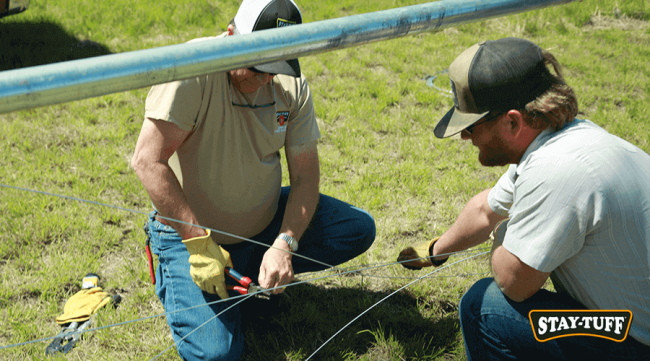
Whether you need a tool for bracing, tensioning, splicing or affixing stage of your installation, you will find it with STAY-TUFF.
You can visit an authorized dealer near you using our Store Locator.
Up ahead: post & post spacing
Next in your cattle fence installation process, you should think about post and their spacing.
Although they may look similar, posts serve different purposes, depending on their position.
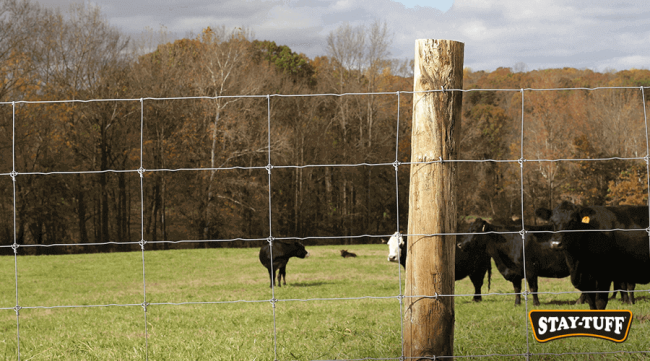
Carefully decide where you will be placing your posts. It is critical that you set them according to their duty:
T-Posts are vertical posts – they help keep the fence in this position. Boss Posts keep the fence wire vertical, and provide extra support along the fence. Corner posts, as the name suggests, are located at the corner of each change in direction the fencing project makes.
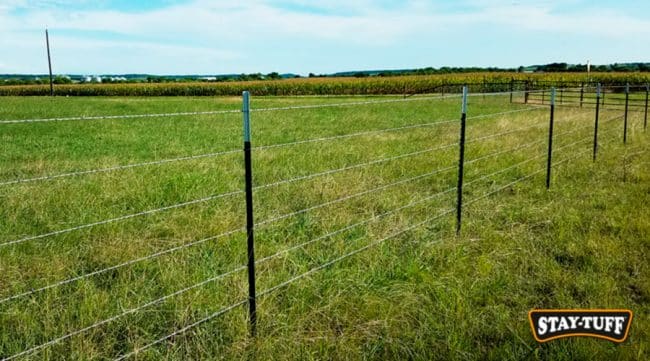
The durability and strength of STAY-TUFF fences allows you to place posts further apart than competitors, giving you the opportunity to save money and efforts on installation.
Choose your fence
When you choose STAY-TUFF for your pasture fences, you’ll have a wide range of high tensile options for your needs.
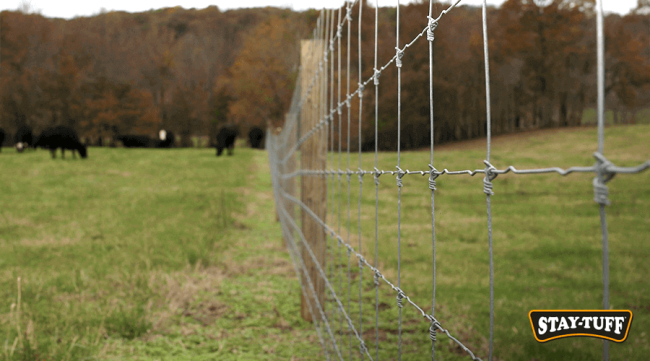
We have a wide catalog of fencing solutions, including Fixed Knot Fence, Hinge Joint Fence, Poultry Netting and Welded Panels, for a variety of uses. If you’re raising cattle, we recommend your fence to be at least 49″.
Additionally, consider adding extra security to your fence. STAY-TUFF also carries a selection of barbed wire fencing and electric fencing solutions for that purpose.
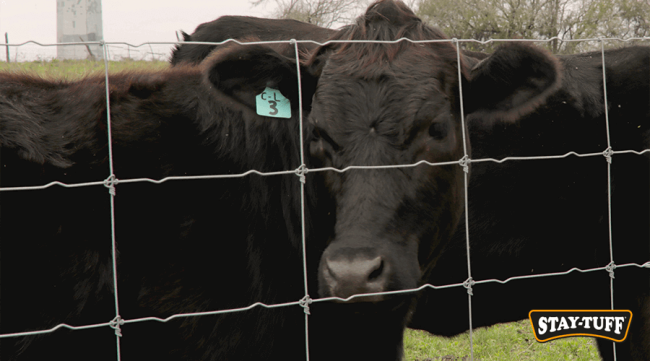
Contrary to a wooden fence, a wire fence is more durable, sturdy and requires less maintenance, saving you time and costs that can be invested in supporting your cattle.
Visit our website
To learn more about our selection of tools and wire for cattle fencing, we encourage you to visit our website.
You’ll discover options for every stage of fence installation, as well as resources that will aid you in the process.
Hello, would it by any chance Stay-Tuff offer any livestock fencing training in Virginia
Thanks